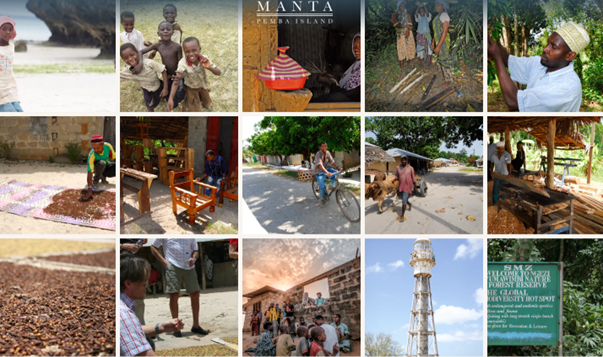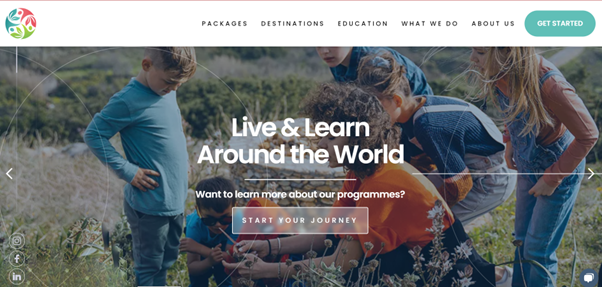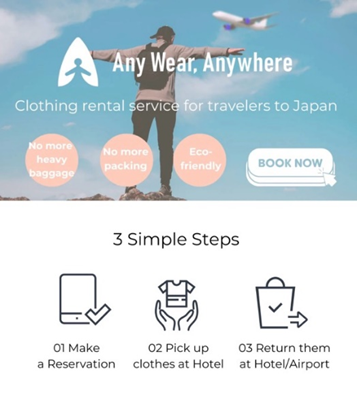Blog
What Matters in 2024: a shift from carefree travel to caring more
How travel brands can facilitate positive change by promoting mindful decision-making and awareness of our impact.
Scott Lee
08 May 2024
4 min read
The World Travel & Tourism Council (WTTC) recently announced a study showing that the travel industry’s global economic impact this year is expected to reach a record-breaking $11.1 trillion. At the same time, headlines are ablaze with the term ‘revenge travel’. But do most travellers truly have revenge on their minds?
Refresh, discover and reconnect
In our unpredictable post-COVID reality, where mental health challenges and feelings of isolation prevail, travel seems to embody something deeper than solely revenge. It offers a chance to refresh and energise, rediscover ourselves and our relationship with the world and reconnect with our natural environment and each other.
Many brands are beginning to recognise this deeper essence of travel and promote the romance of globetrotting, showcasing beautiful destinations, epic adventures and unforgettable moments with friends and family. However, amidst this positive narrative, there are evident signs of a tragedy (of the commons) unfolding in this year’s travel boom. Reports of overcrowded tourist hotspots, environmental degradation and cultural erosion are becoming alarmingly frequent. Recent protests in the Canary Islands, where tens of thousands rallied against unsustainable tourism, serve as a reminder of the strain travel puts on our resources. Likewise, a popular photo hotspot of Mount Fuji is now blocked by a huge barrier to prevent overcrowding by tourists. Perhaps ‘revenge’ is the right word, but not quite in the way intended…

From ‘carefree’ to ‘care more’ travel
While pre-COVID travel was often seen as carefree – go wherever, whenever, however you want – we’re witnessing a shift. People are becoming more mindful, realizing the need to ‘care more’ about their travel choices. It’s about travelling intentionally, responsibly and with a greater sense of purpose.
In our What Matters 2024 study, we found that many individuals are feeling a growing sense of responsibility towards social and environmental issues. 78% also expect brands to step up and lead the way. In response, a rising number of resorts are embracing regenerative travel experiences, inspiring visitors with visionary approaches to sustainability. The Manta Resort, a luxury resort on Pemba Island (Tanzania), for example, invites you to step into a different world – one immersed in nature, dedicated to local communities. Their vision is encapsulated in the Swahili word ‘Kwanini’, meaning ‘why?’. They inspire guests and locals to think about the root cause of issues – like why fish are disappearing, why economic development is challenging – and to keep asking why until they find the origin of the problem. This approach enables them to come up with solutions that will help future generations thrive.

Creating meaningful travel experiences through connection
Travel isn’t just about going places; it’s about reconnecting. People are increasingly interested to explore new ways to make friends, engage with communities and share access to resources. In fact, 57% globally agree that we need to move from owning to sharing goods as this creates less waste.
Boundless Life, for example, is home to an inclusive community of like-minded families eager to “live and learn around the world”. They help families with finding places to stay (co-living), places to work (co-working hubs), educational programmes for their children and provide support from fellow parents. They have united over 500 families and 1,000 children across 5 locations (Portugal, Greece, Italy, Indonesia and Montenegro).

Empowering communities around the world
Now more than ever, travellers, especially Gen Z, seek to immerse themselves in diverse perspectives and cultures to gain genuine insights into the world. Listening to different cultures and communities, especially to those on the margins of society, can drive positive change for all.
Elevating the voices of marginalised communities during our global travels is a powerful way to instigate change from the grassroots. In fact, 67% globally agree that people that have experienced injustices themselves know best how to make a difference and drive change. By listening to those most affected and providing them with a platform, we enrich our own experiences while empowering them.
For instance, the Restaurant of Mistaken Orders in Japan hires waitstaff suffering from dementia, fostering a warm-hearted, enriching experience for all involved. By empowering individuals with dementia and cultivating an open, inclusive atmosphere, guests both learn from and support the aging population, demonstrating their capabilities and instilling confidence. What’s truly remarkable is how it portrays people living with dementia as joyful, industrious, helpful, communicative and gracious.

Empowering actions for a better future
Life-sized challenges can be overwhelming, making it difficult for people to understand what actions they can take and what impact those actions will have. Globally, 77% of people express a desire to learn and understand what concrete steps they can take to create a better future for both people and the planet.
Airlines are increasingly introducing targeted initiatives to mitigate their environmental impact, helping people understand what they can do. For example, on Earth Day, Cathay Pacific Airways offered customers complimentary carbon offsetting through their Fly Greener programme. Similarly, Japan Airlines (JAL) allows tourists to travel light by renting clothes via its “Any Wear, Anywhere” initiative. This reduces the weight of JAL aircrafts, thereby decreasing the airline’s carbon emissions. Travellers can simply pick up clothes at their hotel and return them when they leave.

By encouraging more thoughtful decisions in travel and fostering mindfulness about our impact, travel brands can help individuals to make positive change. This can be achieved through inspiring visions, fostering connections, empowering communities and simplifying the process for individuals to start making a difference.
*Survey ran in October 2023 – 17 markets (AR, AU, BR, CL, CN, CO, DE, FR, HK, MX, PH, SG, TH, UAE, UK, US, ZA), n= 13.028
What Matters 2024
The 2024 edition of our What Matters report has arrived. The report takes a clear stance for change driven by a call for urgency, as new research reports 8 out 10 people worldwide are worried about the future and feel brands need to take responsibility.